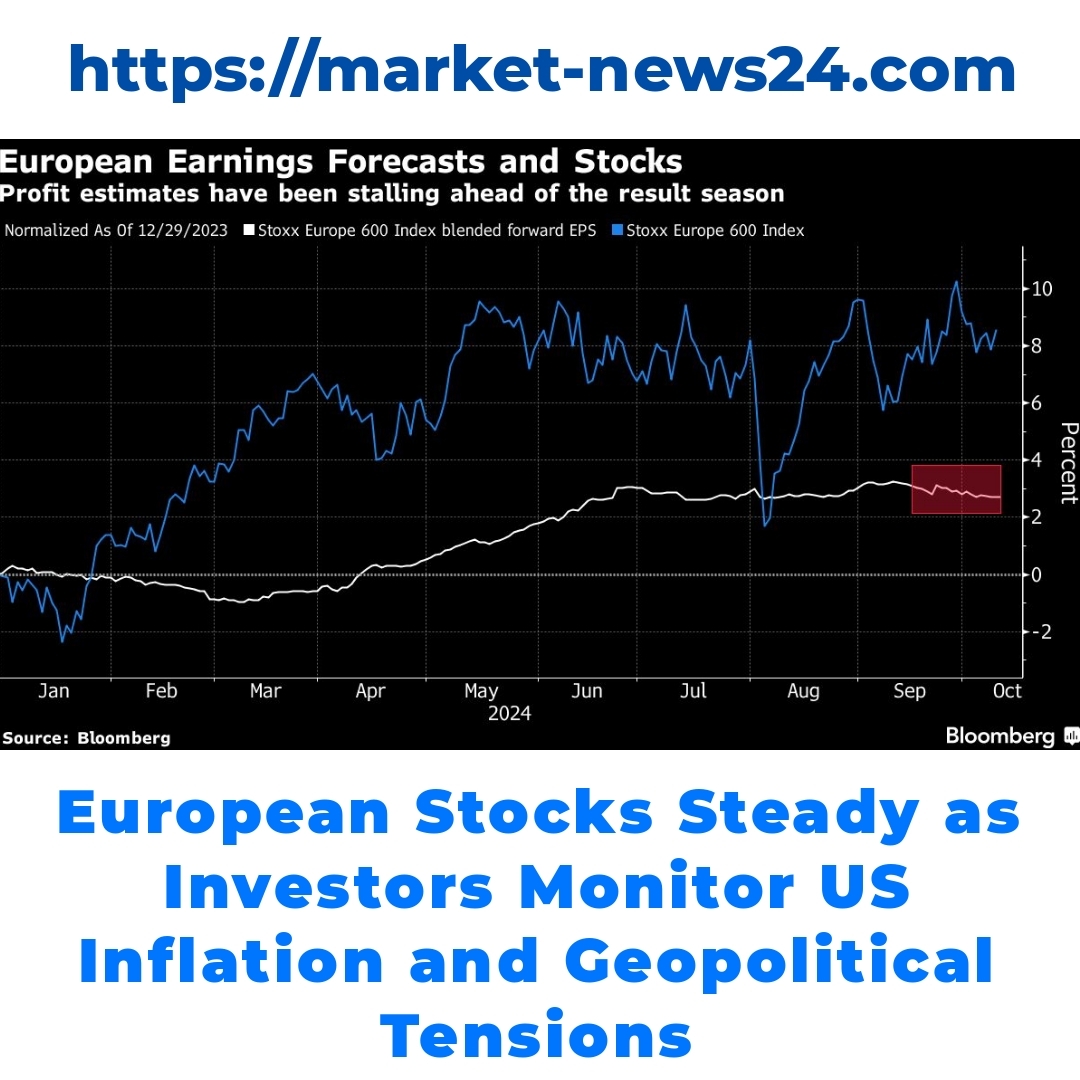Amidst recent market fluctuations, European stocks have shown notable stability this Thursday, reflecting a steady investor sentiment. As traders keep a close watch on the upcoming US inflation data and various geopolitical developments, the interplay of these factors could significantly influence market dynamics in the coming days.


European Stocks Performance on Thursday
On Thursday, European stocks displayed a solid performance, indicating a sense of stability among investors. Major stock indices like the FTSE 100, DAX, and CAC 40 all showed slight gains, providing a positive outlook amidst the current market climate. Investors appear to be holding steady, absorbing recent news and waiting for key economic updates.
The stability in the stock market can be attributed to several factors. Firstly, investor sentiment seems to remain resilient despite the anticipation surrounding significant US inflation data. With many traders reporting a cautious yet optimistic outlook, European stocks are reflecting a collective confidence in both local and global economic conditions.
The Anticipation Around US Inflation Data
As we dive into the market dynamics, the importance of the upcoming US inflation data can’t be overstated. This data is crucial because it often sets the direction for market movements worldwide, including the European markets. Historically, when inflation rates in the US fluctuate, they can cause ripples across international borders, affecting how European stocks perform.
For instance, if the inflation data shows a significant increase, we might see investors becoming more cautious, which could lead to a downturn in European stocks. Conversely, if the data indicates stability or a decrease, it could bolster confidence and drive stocks even higher. Understanding these patterns helps investors prepare for potential market shifts.
Geopolitical Developments and Their Impact on European Stocks
Current geopolitical developments are also playing a vital role in shaping investor sentiment in Europe. Events like trade negotiations, political tensions, and international conflicts can influence market behavior significantly. For instance, recent news around trade tariffs or changes in policies can lead to fluctuations in stock prices, creating uncertainties for investors.
Examples of recent geopolitical events include ongoing discussions about energy supply chains and the political climate in Eastern Europe. These factors create a backdrop that investors must navigate, affecting how they perceive risks and opportunities in the market. As these geopolitical developments unfold, their impact on European stocks is something to keep a close eye on.
Interplay of Economic Indicators and Market Behavior
In the world of investing, various economic indicators play a significant role in shaping market behavior. Alongside US inflation data, other economic markers such as unemployment rates, consumer spending, and industrial production are essential. These indicators help paint a broader picture of economic health and investor confidence.
The correlation between these economic indicators also sheds light on market stability or volatility. For example, if US inflation data is high but other economic indicators show growth, it could lead to mixed responses in European markets. Investors need to consider all these factors to make informed decisions about their investments.
Predictions and Market Outlook
Looking ahead, predictions regarding European stocks in the wake of anticipated US inflation data and ongoing geopolitical developments can vary. If the inflation figures come in lower than expected, it could lead to a positive surge in European market performance. On the other hand, high inflation might lead to increased volatility as investors react to the new economic climate.
Ultimately, the path forward may involve adopting cautious investment strategies, especially in sectors potentially more sensitive to such changes. This might include focusing on well-established companies with strong fundamentals or diversifying investments to manage risk effectively.
Conclusion
In summary, monitoring European stocks alongside US inflation data and geopolitical developments is crucial for understanding the current market landscape. Staying informed about these aspects enables investors to make better decisions amid uncertainty. As we continue to watch the unfolding scenarios, remaining updated on financial news and market trends will be essential for successful investing.
Call to Action
If you’re interested in keeping up with stock market performance and investment trends, consider subscribing for regular updates. Additionally, delving into further reading on the effects of economic indicators and geopolitical events on market dynamics can enhance your investment strategies. Understanding the intricate relationship between these factors will empower you in your investment journey.
FAQ
What were the performance trends of European stocks on Thursday?
On Thursday, European stocks, including major indices like the FTSE 100, DAX, and CAC 40, showed slight gains, indicating a stable investor sentiment amidst current market conditions.
What factors are contributing to the stability in the European stock market?
The stability is attributed to resilient investor sentiment and optimism, despite expectations surrounding significant US inflation data. Investors are cautiously optimistic, showing confidence in both local and global economic conditions.
Why is the upcoming US inflation data important for European stocks?
The US inflation data is critical as it often influences market movements worldwide. Fluctuations in US inflation can lead to reactions in European markets, affecting investor confidence and stock performance.
How do geopolitical developments affect European stocks?
Geopolitical events, such as trade negotiations and international conflicts, significantly impact investor sentiment. Recent discussions about energy supply chains and Eastern European political climates are examples of factors that influence market behavior.
What economic indicators should investors pay attention to?
Key economic indicators include:
- US inflation data
- Unemployment rates
- Consumer spending
- Industrial production
These indicators help portray a clearer picture of economic health and can reveal market stability or volatility.
What predictions exist regarding future performance of European stocks?
Predictions vary, but if US inflation figures are lower than expected, European markets may surge. Conversely, higher inflation could lead to increased market volatility as investors react to economic changes.
What investment strategies should be considered during this time?
Investors might adopt cautious strategies, focusing on:
- Well-established companies with strong fundamentals
- Diversifying investments to manage risk





